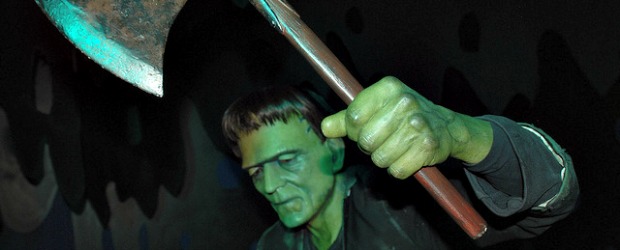You have no items in your cart. Want to get some nice things?
Go shopping
Recently I returned from a trip abroad and found that I did not recognize the life that I had returned to. Of course, when you come back from a holiday there is always a sense of needing to readjust mentally as you stop spending your time as you choose and return to work and the numerous other responsibilities that require so much of your attention, but the sensation that I experienced was not the same thing. The stories that I had told myself about myself no longer seemed credible and the only stories that suggested themselves as viable replacements left me feeling estranged from the person that I had turned out to be.
It might be difficult to conceive of the extent to which such a feeling could be terrifying, and you might think it a trivial matter unworthy of taking into consideration. After all, feeling estranged from yourself is not the same as returning home from holiday, closing the door behind you and dropping your luggage on the floor only to discover that the person you thought you were arrived a little earlier, has already unpacked and has no desire to accommodate you. There is a moment in Jean-Philippe Toussaint’s Reticence, though, that illustrates the feeling quite accurately, when the narrator sees himself in a mirror and notices that he looks worried ‘as if it was myself that I mistrusted, as if in fact I was the one that I was afraid of.’
Reticence is filled with the imagery of a horror story. There are dead cats floating in the port, hooks baited with fishheads caught in their mouths; the beam of light from the lighthouse cuts through the darkness, illuminating a space for nothing more than a moment before moving on and committing it to darkness once again; there is a car that always seems to follow the narrator, a Mercedes with battered and torn seats, the foam bursting through large gashes. Whilst this imagery weaves together to give the narrative a feeling of suspense and tension, there is something missing. There’s no monster, no villain, only the feeling of reticence the narrator has about visiting his friend Biaggi. In reality, Biaggi is out of town anyway, but the reticence fuels an alternative narrative of paranoia and fear, transforming the book from a tedious story about one man’s vacation during the off-season into a horror story without the horror.
It is wrong to describe the horror as the alternative narrative, though, because it is the form of the story, the narrative that best expresses the narrator’s experience. Though a concrete reality is visible when the story becomes threadbare, unable to adequately sustain its own contradictions, the narrator never questions it; the horror forms the fabric of his reality.
In the newspapers, in conversation with strangers on the street, on the television you get the impression that the world is full of monsters to fear. Usually I am not afraid of monsters, though, I am more afraid of the fear of our monsters, the personalities that choose these monsters as the narratives that connect us to the world. Even though these monsters are just stories that we tell each other, since returning from my holiday I get the feeling that I am not the only person who feels estranged from myself and I see the evidence in these ubiquitous monster stories.
There is an internal logic at the heart of Reticence that offers some sort of key to unlocking the secret at the heart of the fear. The sensation of reticence can be understand as the feeling that characterises the narrator’s dislocation from his desire not to visit his friend, which he is unable to reconcile with the social expectation that he ought to visit his friend. This inability to reconcile his desire with his responsibility leads him to create a narrative in which Biaggi is part of some unexplained conspiracy that involves him murdering cats, spying on the narrator and, in addition, also being dead for an unspecified period of time. What has been dramatised is the horror of self-estrangement. The horror is a way of circumventing desires that seem unattainable, or ill-suited to the real world. It is a way of making excuses for yourself when you find yourself doing the things you ought to do as opposed to the things that you want to do, living the life you are expected to live as opposed to the life that you would like to live. Then one day you find yourself looking into a mirror and wondering if it is yourself that you fear, yourself that you ought to mistrust.
The horror narrative is more believable to the narrator than the idea that he doesn’t want to visit Biaggi and it is for this reason that the narrative itself is as monstrous than any monster that might have found its way into the story, because it not only animates the space between the physical self and the ideal self, it is the wall of fear and mistrust that separates them.
I have not yet succumbed to the fear, but I still see the two parts of me: the hopes and dreams, the idealised version of myself that I had mistaken for the reality prior to my holiday, and my physical self going through the motions of life, waking up, going to work, eating, sleeping, talking. Though I identify myself as the nexus of thoughts and feelings, something terrible suggests itself to me: that actually if we cannot live together, these two versions of myself, if one of us must die, then it is I who will die and the other me, the shell that I feel so alienated from will remain, performing hollow social functions to enable the wheels of other people’s stories to keep turning. It is I, the part of me who has hopes and desires, that is mistrusted and it is the other part that is able to function in the real world.

In Jose Mojica Marins’ film At Midnight I’ll Take Your Soul, Antonio displays all of the characteristics of someone who has become so estranged from themselves that only the shell remains. Antonio is not only one of Ze do Caixao’s victims, he is also, inexplicably, his best friend. Ze is the exact opposite of Antonio, he is desire unrestrained, he is the monstrous ego unleashed, he is the violent centre of the community in which he lives. You would never misunderstand Ze’s intentions: he either wants to kill you or rape you. He is frustratingly violent, inexplicably covetous and his monstrousness is simply ridiculous. By making him the protagonist, Marins has unwittingly stripped him of any of the mystique that might have salvaged him as a villain. The effect is that the film seems to have been flipped inside out and Antonio, out on the periphery, is more horrifying than Ze, who is nothing more than a caricature of Camus’ Meursault. The thing about Antonio that is terrifying enough to transform him from victim to monster is that even once he is dead and buried, nothing more than a corpse in the ground, he displays no less desire, feeling or interest in the world than when he was alive.
As terrible as Ze is, I cannot help but imagine that his evil is a product of Antonio’s self-estrangement, either as narrative projected onto the person of Ze, as in the case of Reticence, or simply because Ze’s monstrousness is a response to the monstrousness around him. The film leaves you with the impression that the monstrousness of Ze is just one side of the equation and that on the other side is the inhumanity of the village in which he lives, populated entirely by Antonios, desireless, hopeless, fearful.
Witnessing the relationship between Ze and Antonio makes it possible to imagine the monster as the direct consequence of absent desire, crushed hope and mind-dulling banality. In Reticence there is still hope for the narrator because even though he never questions the story into which he has placed himself, there is a sense that by the end of the book the riddle has been, if not solved, rendered irrelevant. In addition he is able to question his own relationship to the fear and the mistrust, whereas the villagers in At Midnight I’ll Take Your Soul simply accept the torments that come their way without questioning the source of their fear, the source of the monster’s power and authority over them.
Self-estrangement does not merely remove hope and desire, it creates a blank space to be filled by fear and suspicion. In other words, the horror narrative is only able to exist in the space it is allowed by the absence of other narratives. One of my favourite stories, Cockroaches by Bruno Schulz, illustrates the final stage of self-estrangement, when the full tyranny of horror manifests itself. The child narrator’s diagnosis of his father’s problem ought to seem familiar: he is unable to ‘merge with any reality and [is] therefore condemned to float eternally on the periphery of life in half-real regions, on the margins of existence.’
At this stage of self-estrangement it is impossible for the sufferer to narrate their own version of events and it falls to the child to concoct a story to explain why he has not seen his father in such a long time. He recalls the house being overrun by cockroaches and his father crying out in fear and attempting to stab them. Being estranged from himself, though, the father no longer possesses ‘that power of resistance which protects healthy people from the fascination of loathing’ and as such the loathing he feels towards the cockroaches turns to obsession. He begins to act like the cockroaches, hiding from the rest of the family in crevices whilst his skin acquires the appearance of cockroach skin. He continues to live for many more weeks after he has completed his transformation into a cockroach until one day he is discovered dead, lying on his back and is swept into a dustpan and thrown into the fire.
Since returning from holiday I’ve been haunting myself, witnessing my life from a safe distance, occasionally trying to assert myself and to be the person that I would like to be. The story that has alienated me from myself has become concrete and a monster is starting to take form. He is frail and dishevelled, his pallid skin stretched taut over his bones and the wisps of gray hair that sit atop his head only accentuate his skeletal appearance. In spite of the fact that time has not been kind, there is still something recognizable. This is another version of myself: older, lonelier, someone who has suffered years of financial insecurity, job losses and homelessness. His monstrosity is ridiculous, but the version of me who carries on doing all of the things that he doesn’t want to do is afraid that if he stops this is what he will become. I need to make him understand that he should trust his hopes for his life and start following his desires rather than making choices motivated by fear, or one day he will become this frightened, unwell old man, full of regret. When they come for him they will find him lying on his back waiting to be swept into a dustpan and thrown into the fire.

About David Simpson
David studied literature in Edinburgh and Manchester before teaching English in Athens for two years. He mostly writes short stories, but is currently working on a novel. After discovering a passion for European fiction, he had a better understanding of what he would like to achieve with his writing. He has been failing to reach those standards ever since.

